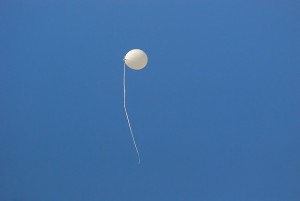
…in terms of how I feel about life “outside” of myself, I notice the ways in which my life feels unacceptable, and resign myself to being fully present for life in spite of the pervasive inadequacy of my situation. This includes all of my feelings and thoughts of resistance to discomfort, loss, pain, shame, dullness, stress, or whatever is bothering me. “So, here we are,” I say to myself. “Surrounded by a mess. Forgot again. Stuck your foot in it again. You’ll never get it all done. This is incredibly unfair. Life can be so painful. Or horrifying. Or boring. Or lonely.” I don’t have to like it. I don’t have to approve of my own reactions to the crappiness. All I have to do is be with it all. All I have to do is not turn away from my life.
This practice is so subtle it’s almost impossible to describe in words, but I’ve still got to try. As I stop resisting the way things are, I refuse to postpone appreciation for my life until everything is perfect. I throw out the strident disapproval I’ve been carrying around in my heart as if it would shame everyone into changing. I loosen my grip on my almighty list of the way things should be, and experience the bittersweet intimacy of the way things actually are. I wake up in the driver’s seat. I come home to my life, like Dorothy waking up in Kansas and being so delighted to be back in the situation she had so recently run away from.
Do you see how this has nothing to do with liking or not liking what’s going on? Do you see how this has nothing to do with twisting your experience around and pretending you think all the misery in the world is actually beautiful? It doesn’t deny or sanitize or reinterpret your experience. It doesn’t say anything about what you’re going to do next. It’s entirely about being fully present right now.
Right now is where you have freedom of choice. Right now is where the beauty and wonder of your life can be appreciated. Right now is where you can leap free of the stories and see clearly. Nothing in the universe obstructs us from experiencing our lives this way – no matter how inadequate we are, no matter how many regrets we have, no matter how much misery we’re experiencing, no matter if the whole world is going to hell in a handbasket. In this moment you don’t have to make any excuses at all. You can show up with utter earnestness and dignity. The only thing that gets in the way is your own mind – which means all you have to do is learn to get out of your own way.
At the beginning of practice, most of us are pretty skeptical that you can just “let go” of dukkha. It’s been with us all of our lives, and it’s clearly a direct result of the fact that our conditions are dissatisfactory, imperfect, and sometimes downright awful. We think dukkha is inevitable, like the sensation of burning if we put our hand too close to a flame. Fortunately, this isn’t true. This is the amazing thing that Shakyamuni Buddha discovered 2,500 years ago. Dukkha is all in your mind. Or, to use more classic language, the arising of dukkha is inevitable, but as long as you can let go of desire (particularly, the desire for anything to be other than how they are), you can be free of it. Of course, the dissatisfactory world is not all in your mind. The suffering of sentient beings is not all in your mind. Fortunately, although there’s always a limit to what you can do about the state of the world, dukkha you can release like a helium balloon – and you don’t have to wait until you or your conditions get better. You can release it right now.
You may find it works for you to think of this practice as “acceptance.” If so, that’s fine! For me, “acceptance” tends to imply an active embrace that feels disingenuous (that is, dishonest or inauthentic). I prefer to recognize how I’m resisting the way things are and then cut it out. I can show up to the present moment along with my conviction that the emperor has no clothes and my refusal to pretend he does. As long as I don’t resist even my own attitude, it can just be part of my larger experience.
Now, what does it feel like to engage the present moment and act in the world without tying everything back to our sense of self?
Once I’ve woken up in the driver’s seat of my life, I take a look around. Without the filter of dukkha over my experience, I am naturally informed by things. Responses arise. Things need to be taken care of. I have interests and skills that influence the kind of course I choose to take. I can only do one thing at a time. I can’t do everything. I’ll never finish it all. I can’t do any better than my best. Everything flows along pretty naturally, with a minimum of second-guessing and worry, as long as I don’t start tying everything back to my sense of self.
By “tying everything back to my sense of self” I mean interpreting all results – at least in part – in terms of their effect on my inherently existing, independent, enduring self. This self doesn’t actually exist, but it’s a profoundly convincing narrative we impose on our moment-by-moment experience. We’re actually just a flow of causes and conditions. We exist in a very real way, but without fixed boundaries, and we’re interdependent with everything else in the universe. I am only “me” because of the big bang, fundamental elements like carbon and oxygen, the earth, evolution, my ancestors, our country, and the people who grow my food. I am only “me” relative to “you” and all other beings. But I assume, as do all human beings, that there is fundamental core within me that never changes.
Again, this pretty subtle stuff, so an example might help. Let’s say I decide to become politically active in order to fight global warming. Objectively, this is good thing. I’m trying to be a bodhisattva, create positive change in the world, and enact my sense of interconnection with the planet and all beings.
I start creating suffering – at least for myself – when I tie my sense of self to my efforts. My sense that I am substantial, worthy, effectual, safe, and/or connected with other beings becomes tangled up with the situation I am trying to address, with my opinions, intentions, and ideals, and with the resistance I face in my efforts to change what’s happening. In my internal narrative about myself and the world, I have to succeed, or else. The alternative, not succeeding, is completely unacceptable. I get discouraged or angry unless the changes I’m working for come fast enough to meet my standards. The possibility of a disastrous outcome casts a pall over my whole life.
Now, you might say, “Shouldn’t the possibility of a disastrous outcome cast a pall over your whole life?” Maybe the disastrous outcome is an uninhabitable planet, or abject poverty, or the loss of a loved one! Incredibly, even when circumstances are dire, we don’t have to operate under a pall, or full of worry. In fact, if we do, our ability to help improve things will be seriously compromised.
It’s possible to act energetically and wholeheartedly without it having anything to do with my narrative about my inherently existing, independent, enduring self. Right now, in this moment, I respond as best I can. My response arises out of the flow of causes and conditions that is my life. When I get caught up in a narrative about the possibility or acceptability of certain outcomes, or obsess about how to spend my energy in order to maximize positive benefit (so I can be sure I’m a good person, or I’m not wasting my life), I return to stillness and remember to stop resisting the way things are. It’s not that I don’t care, it just means I’m not going to make my wholehearted living contingent on a particular outcome. Until the end comes, I’ll show up. In this moment.
To use the more traditional term “non-attachment,” I like to think of non-attachment as meaning “not attaching stuff to your sense of self.” It doesn’t mean not investing yourself in things, and doesn’t mean you don’t do everything in your power to bring about the outcome you hope for. It just means not getting too caught up in your stories. It means allowing your best response to come forward, and then enacting it with a sense of generosity – your action is your gift to the world, the best one you can think of to give, and you offer it wholeheartedly without skulking about waiting to be thanked, or regretting your generosity because you didn’t get the result you wanted.
It can take many years of practice before we get a sense, for ourselves, what the practices of acceptance and non-attachment really are – before we find relief from our dissatisfaction and suffering while at the same caring deeply about the world and doing our best to help all beings, including ourselves. The process of discovery is gradual and full of trial and error, and you are right to doubt what you think things mean.












